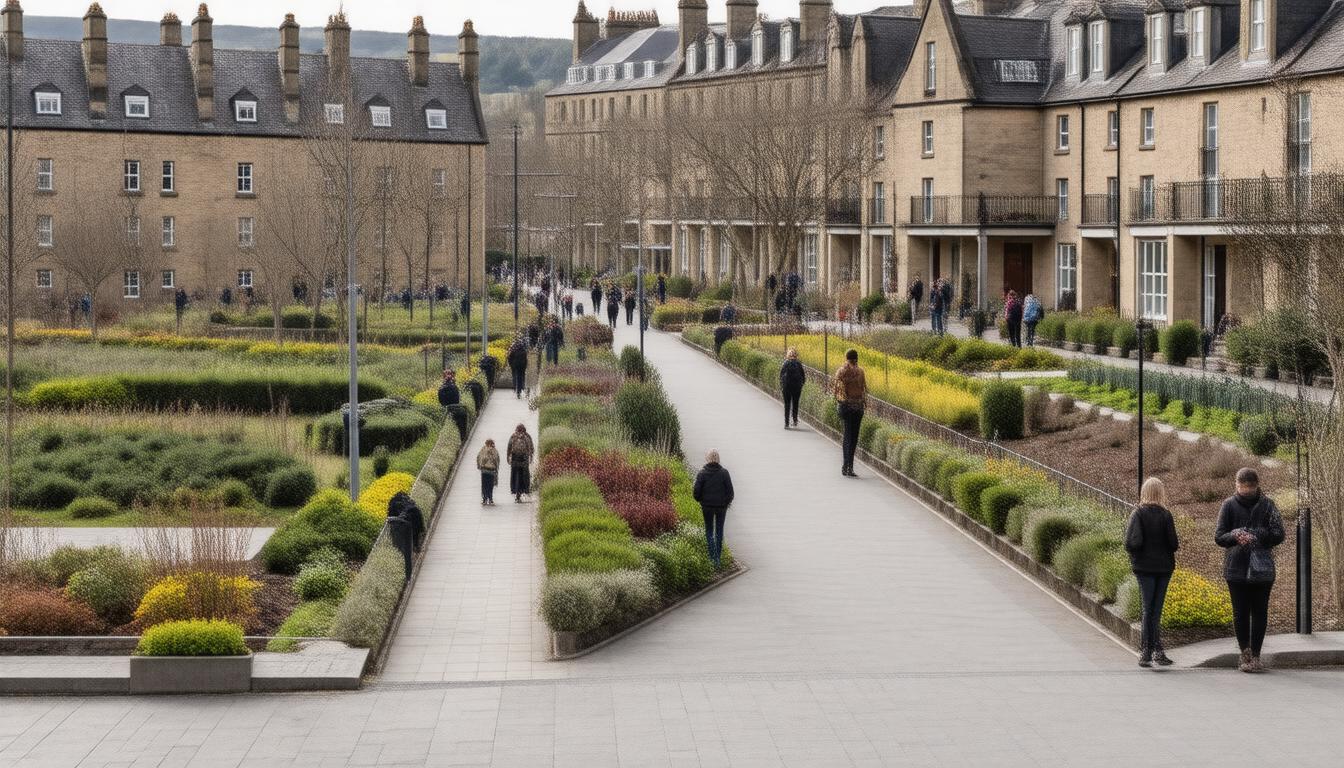In a decisive move aimed at addressing the pervasive housing crisis in Edinburgh, the City Council has initiated the relocation of at least 700 homeless residents currently occupying 30 properties identified as unlicensed Houses in Multiple Occupation (HMO). This restructuring is pivotal as these properties have failed to secure legal licenses, which are essential for ensuring the safety and welfare of tenants sharing communal facilities. The council’s strategy prioritizes the relocation of vulnerable residents to compliant accommodations, amidst a backdrop of rising homelessness driven by escalating rental costs and dwindling government support for social housing. Local housing charities and council members have expressed deep concerns over the limitations of temporary housing solutions as the city grapples with urgent social housing needs. Shelter Scotland’s Gordon MacRae has openly criticized the council’s past measures, arguing that merely adjusting housing allocations does not tackle the systemic issues stemming from long-term underinvestment in social housing. In response to the crisis, Edinburgh City Council’s housing convener, Cllr Jane Meagher, has acknowledged the exceptional pressures on temporary accommodation systems, pledging efforts to secure licensed housing options and enhance turnaround rates for available council homes. Additionally, community representatives like Eilidh Keay from Living Rent have condemned the council for initially permitting residents to live in unlicensed conditions and stressed the necessity for prompt action to safeguard these vulnerable individuals.
Key Takeaways
- The Edinburgh Council is relocating 700 homeless residents from unsafe unlicensed accommodations.
- Critics highlight that the crisis stems from long-term underinvestment in social housing, not just temporary solutions.
- Local charities stress the urgent need for more suitable temporary housing options amid escalating homelessness.
The Impact of Unlicensed HMOs on Homeless Residents
In a significant move addressing the housing crisis, the City of Edinburgh Council has announced plans to relocate at least 700 homeless residents currently living in 30 identified unlicensed Houses in Multiple Occupation (HMOs). These properties, which have not met the necessary legal requirements for safe living conditions, have become a focal point of concern as pressure mounts on Edinburgh’s temporary accommodation systems. The challenge is further compounded by a critical shortage of temporary housing options, as highlighted by local housing charities and counselors. Their warnings come in the wake of rising homelessness due to soaring private rent prices and what many argue is chronic underfunding of social housing initiatives by the government (Scottish Housing News, 2024). Despite the council’s efforts led by housing convener Cllr Jane Meagher, who emphasised a commitment to finding suitable licensed accommodations and engaging private landlords to adhere to regulations, advocates like Gordon MacRae from Shelter Scotland and Eilidh Keay from Living Rent stress that these measures only address the symptoms of a larger crisis rooted in decades of underinvestment in adequate housing. Without substantial changes, they warn, the housing situation in Edinburgh will remain dire, perpetuating the cycle of homelessness and inadequate living conditions (BBC Scotland, 2024; The Guardian, 2024).
The urgency of this situation underscores the critical need for government action and community support in tackling the longstanding issues affecting Edinburgh’s housing landscape.
Government and Community Response to the Housing Crisis in Edinburgh
The escalating housing crisis in Edinburgh calls for comprehensive strategies to address the root causes of homelessness. In recent months, rising private rental prices have placed additional strain on vulnerable populations, emphasizing the necessity for both immediate aid and long-term solutions. The City of Edinburgh Council’s efforts to relocate residents from unlicensed HMOs are a crucial step; however, as Councillor Meagher pointed out, the challenge lies in securing enough suitable accommodation to prevent further displacement (Edinburgh News, 2024). Housing advocates have advocated for more aggressive measures, including increasing investment in social housing and enhancing support for local charities that assist homeless individuals. The urgency expressed by community leaders highlights a growing consensus that the current approach lacks the intensity needed to substantially affect the crisis’s trajectory. Expertise in the housing sector suggests strategies such as streamlined access to social housing and incentives for landlords who opt to maintain affordable rent levels, which could lead to more sustainable outcomes for those at risk of homelessness (Holyrood Magazine, 2024). Ultimately, addressing this complex issue requires collaborative efforts between the government, local councils, and community organizations to ensure that all residents have access to safe and secure housing.





